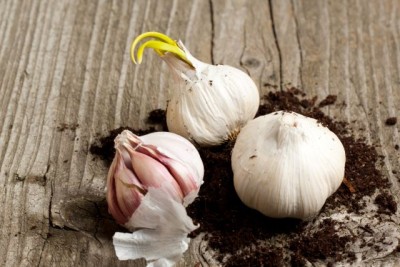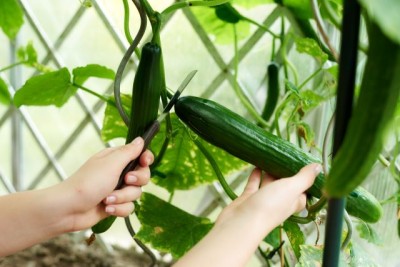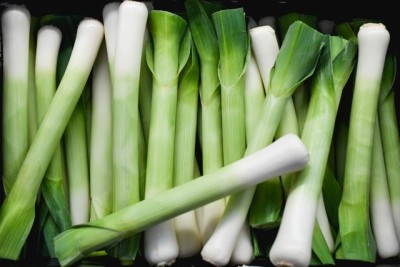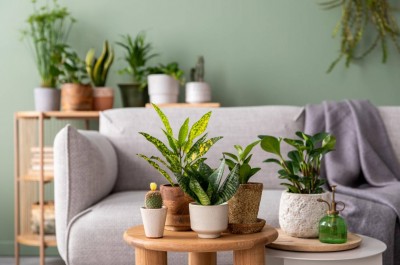12 Ways To Use Apple Cider Vinegar In The Garden
Warning: Undefined variable $post in /home/dietofli/public_html/wp-content/plugins/code-snippets/php/snippet-ops.php(584) : eval()'d code on line 3
Warning: Attempt to read property "ID" on null in /home/dietofli/public_html/wp-content/plugins/code-snippets/php/snippet-ops.php(584) : eval()'d code on line 3
The estimated reading time is 8 minutes
Warning: Undefined variable $post in /home/dietofli/public_html/wp-content/plugins/oxygen/component-framework/components/classes/code-block.class.php(115) : eval()'d code on line 3
Warning: Attempt to read property "ID" on null in /home/dietofli/public_html/wp-content/plugins/oxygen/component-framework/components/classes/code-block.class.php(115) : eval()'d code on line 3
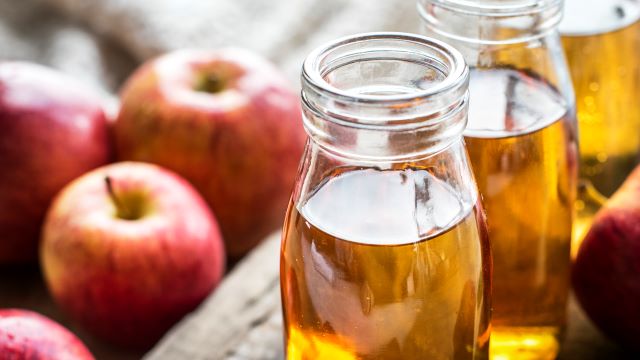
For a long time, apple cider vinegar has been used for all kinds of purposes, from making delicious food recipes and home cleaning products to absorbing odors and losing weight. Indeed, apple cider vinegar is one of the most useful liquids. But, did you know that it can be used in the garden too?
Yes, you read that right. Apple cider vinegar can benefit your plants too. And in this article, we’re going to discuss how you can use this wondrous liquid in your garden. (1)
12 Uses for Apple Cider Vinegar in the Garden
1. Use Apple Cider Vinegar to Clean Plant Leaves
Apple cider vinegar can be used for cleaning leaves of both indoor and outdoor plants. When dust builds up on plants’ leaves, this can have a negative effect on the growth of plants as well as their photosynthesis. To prevent this, you need to make sure you clean their leaves frequently.
For this purpose, dilute a teaspoon of apple cider vinegar with one gallon of water. Stir the mixture thoroughly and soak a cloth in it. Use the soaked cloth to gently wipe dirt off dirty leaves. In addition, the smell of the vinegar will prevent pests from damaging your plants. (2)
2. Use Apple Cider Vinegar to Fertilize Your Plants
Unlike white vinegar, which is usually used as an herbicide, apple cider vinegar has a fertilization effect. Having 5 percent of acidity, it is best to use it to fertilize plants that grow in acidic soil and which can derive benefit from vinegar, such as blueberries, hydrangeas, daffodils, azaleas, and gardenias. You can also fertilize potted plants.
To fertilize your plants, fill a 10-gallon bucket with water and pour 10 ounces of apple cider vinegar. After you stir the mixture well, pour some of it in a sprayer or watering can and water around the roots of the plants you want to fertilize. Avoid spraying the mixture on the leaves because it can burn them.
And here’s one tip: To fertilize plants, use apple cider vinegar which has the pulp as it’s rich in the nutrients that your plants need. And one more thing, make sure you use vinegar which is organic in order to avoid adding residual pesticides to your plants.
3. Use Apple Cider Vinegar to Clean Old Garden Tools
In addition to keeping your plants healthy, apple cider vinegar can come in handy for cleaning your old garden tools as well. So, if you already have a pile of rusty tools lying scattered around your garden, reach for your apple cider vinegar to put an end to this problem.
All you need to do is apply the apple cider vinegar to the rusty tools and then rinse it off with water or just wipe the tools with a cloth. And if the rust is stubborn and won’t come off, you can also soak your rusty tools in a bucket filled with the vinegar for a night.
4. Use Apple Cider Vinegar to Make a Fly Trap
Every gardener knows how irritating fruit flies can be. You can use apple cider vinegar to keep them away. Prepare a solution by mixing 1 cup of water, half a cup of apple cider vinegar, ¼ cup of sugar, and 1 tablespoon of molasses.
After you mix the ingredients, pour the solution into bowls or other containers and place them in spots where the flies will be trapped into swarming. However, don’t forget to get rid of the dead fruit flies every once in a while.
5. Use Apple Cider Vinegar as a Fungicide to Protect Tomatoes from Fungi
Tomatoes are prone to different fungal diseases. Mixing one gallon of water with 3 tablespoons of apple cider vinegar can help you get rid of this problem. After you mix these two, apply the mixture to the parts of the tomatoes which have been affected by fungi or mildew. Reapply the mixture regularly.
In addition, there’s another way in which apple cider vinegar can benefit your tomatoes. Tomatoes are prone to blossom-end rot and you can get rid of this problem by mixing powdered eggshells and apple cider vinegar. Once the eggshells have dissolved, add the mixture to the water that you use to water your tomatoes. This will help you prevent your tomatoes from rotting.
6. Use Apple Cider Vinegar to Clean Old Clay Pots
If you have plenty of old, discolored, or dirty pots, forget about throwing them away. Just clean them with apple cider vinegar and you’ll make them appear as new.
To do this, first wipe any collected dirt off your pots, then make a mixture of one cup of apple cider vinegar and four cups of water. Add 1 teaspoon of dish soap to the mixture and stir it well. Then soak a cloth in the mixture and use it to rub your pots. You can also soak them in the mixture. Finally, rinse them with plain water and wipe them with a clean, dry cloth, or let them air dry. You’ll be amazed by the results.
7. Use Apple Cider Vinegar to Keep Pets from Your Garden
Does your neighbors’ dog love wandering into your garden? Or is your cat constantly destroying your flowers? If you don’t want animals to pay an unexpected visit to your garden, you can repel them by using apple cider vinegar.
Dip some rags or old towels in the vinegar and put them in areas from which you want to keep animals away. Besides cats and dogs, the strong smell of apple cider vinegar can repel rodents, rabbits, deer, raccoons, and moles as well.
8. Use Apple Cider Vinegar to Remove Weeds and Grass
It can be quite annoying when unwanted grass and weeds begin to sprout through the cracks in your lawn. To get rid of them, mix around two cups of apple cider vinegar, one gallon of water, and five teaspoons of Epsom salt. Stir the ingredients well and pour the mixture in a spray bottle. Spray it directly on the weeds. But, make sure you don’t spray it on your fruits, vegetables, flowers, or any other plants that you want to keep.
9. Use Apple Cider Vinegar to Protect Your Plants from Slugs
Apple cider vinegar can be used as a pesticide to eliminate pests, such as snails and slugs, from your garden. To get rid of such pests, mix an equal amount of the vinegar and water in a spray bottle and spray the pests with the mixture.
10. Use Apple Cider Vinegar to Keep Ants away
Apple cider vinegar is known to repel ants. Just mix an equal amount of water with apple cider vinegar in a spray bottle. And after you shake the bottle thoroughly, spray the mixture on places where ants appear both in your home and in your garden. You’ll see results in no time.
11. Use Apple Cider Vinegar to Repel Bugs
If you have a problem with bugs destroying the leaves of your plants, use apple cider vinegar to deter them. Just mix 3 ounces of water with one ounce of the vinegar and pour it in a spray bottle. Spray your plants with the mixture, but be careful not to spray them too often as you can damage them.
12. Use Apple Cider Vinegar to Acidify Your Soil
As we already said, there are some plants, such as gardenias, blueberries, and azaleas, which thrive in acidic soil. So, if the pH of your soil ranges between 1 and 6, then it’s acidic. But, if its pH value doesn’t range between these numbers, you can use apple cider vinegar to acidify it naturally.
Add a cup of the vinegar to one gallon of water in a watering can and apply it directly to the soil. However, make sure you always check the acidity of your soil prior watering it with apple cider vinegar so as to avoid making it too acidic.
Conclusion
- Apple cider vinegar has plenty of uses.
- To fertilize plants, raw, unfiltered apple cider vinegar should be used because it has the pulp.
- You can use apple cider vinegar to clean leaves of plants, fertilize plants, clean garden tools and clay pots, make a fly trap, protect your tomatoes from fungi, keep pets out of your garden, remove weeds, protect plants from slugs, ants and bugs, and acidify your soil.
- You shouldn’t spray apple cider vinegar directly on your plants. You should dilute it with water first. (3)

